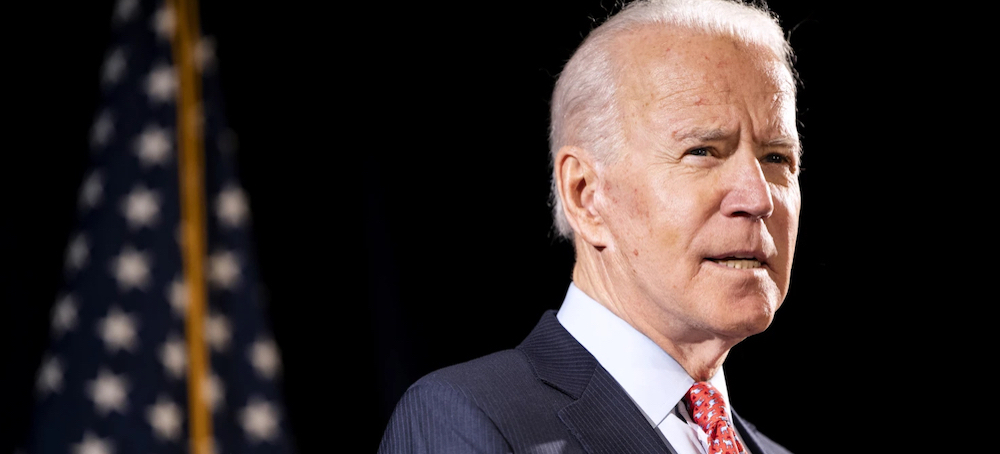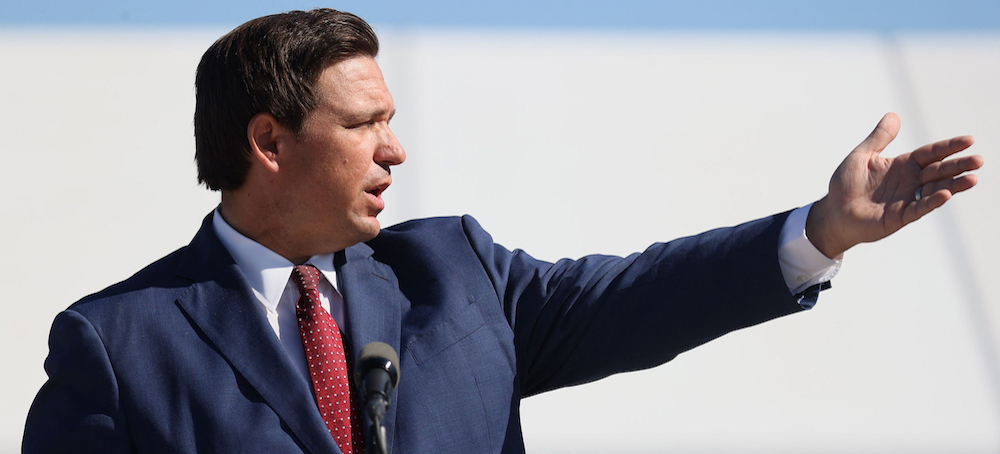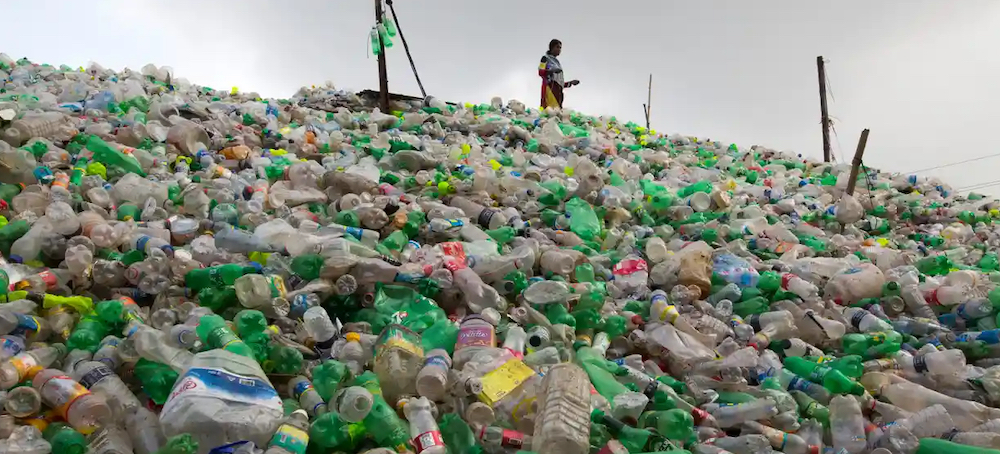Live on the homepage now!
Reader Supported News
I grew up among devout Christians who did not say “gosh” or “darn it” because they took euphemisms seriously. My mother would say, “Oh fudge” but more likely, “Oh for pity’s sake.” I’m an old man and cursing still feels unnatural to me; I’ll bet plenty of Texas legislators who voted for the T.C. bill curse up a storm.
The tablets that God handed down to Moses did not constitute Ten Suggestions, they are Commandments. I don’t oppose posting the Ten Commandments, I only propose that they be taken seriously. And it’s hard to see how allowing people to shop on Sunday and order alcohol in restaurants is keeping the Sabbath holy. I am just saying it because it’s true.
I take Scripture seriously and so I eat beef as it tells us we can in Leviticus, and I also eat salads but not Caesar salads because he was a pagan emperor, but I admit to giving in to wrath, which goes against Scripture. I do it again and again. Like you, I am a bundle of contradictions.
Like many of my fellow Episcopalians, I maintain a progressive enlightened exterior while guarding my simple peasant biases such as my loathing of the use of fancy words like “ubiquitous” in simple conversation, it makes me want to give them a knuckle sandwich if it weren’t for the fact that I’m an author and must protect my hands. Or people who kill conversation by delivering extensive synopses of an article about political polarization that they’ve read recently — POW, right in the kisser.
I absolutely despise the little quiz that pops up on the screen when I finish a transaction online — “On a scale of one to ten, how would you rate your experience ordering from Goodwill? Have you been satisfied with the used clothing you’ve purchased? How likely are you to recommend Goodwill to your friends?” — this sort of thing makes me want to throw my laptop out the window even if it might mean hitting an e-biker on the noggin and he hits the pavement and is run over by a guy on an e-scooter. But the T.C. forbid murder so I simply click Delete and move on. Scripture is very much in favor of deletion; deletion is crucial in matters of faith. Love and kindness are fundamental and the acquisition of wealth and power are not.
The verse I would paint on the walls of the Texas legislature is “So teach us to number our days, that we may apply our hearts unto wisdom.” A good verse for me and you too. To put it another way, “We’re too old to be this stupid.”
I was having lunch not long ago with two guys I’ve known since grade school and one said, “I hope I haven’t offended you” and the other said, “We’re too old to take offense, we’re eighty for gosh sakes.” It’s true: we’ve reached the age of gratitude at last, no more time for anger.
I believe that in 2024 the American electorate will start to wise up to the sort of performance-art politics of the T.C. sort and decide that public servants should serve the public good by dealing with actual problems.
California, Nevada, and Arizona did not deal with the Colorado River emergency by painting a verse on the walls of the Grand Canyon, “All the rivers run into the sea; yet the sea is not full; unto the place from whence the rivers come, thither they return again.” Nor did they curse the problem. They agreed on a (temporary) solution.
And if, on a scale of one to three, you give this column a two, I’m okay with that. Let’s go be wise and forgive Texas for its doggone stupidity and do unto others as we would have them do unto us. You kids stop hitting each other or I am going to send you to your rooms and I mean it.
READ MORE  President Joe Biden. (photo: Ryan Collerd/Getty Images)
President Joe Biden. (photo: Ryan Collerd/Getty Images)
The relief plan, which would cancel up $20,000 in federal student loan debt for tens of millions of Americans, has been tied up in the courts for months. A Supreme Court ruling that could block the plan is expected by early July.
The latest legislative action against the plan amounts to a symbolic show of congressional disapproval.
Republicans introduced the bill by invoking the Congressional Review Act, which allows Congress to reverse executive orders and requires only a simple majority in both chambers to pass. But it still requires a two-thirds majority to override a presidential veto, and Republicans aren't expected to have the numbers.
The resolution passed the House last week with a 218-203 vote. Thursday's Senate vote was 52-46.
Two moderate Democrats — Sens. Joe Manchin of West Virginia and Jon Tester of Montana — sided with the Republicans to vote in favor of the bill. Arizona Sen. Kyrsten Sinema, an independent, also voted in favor.
Sens. Michael Bennet, D-Colo., and Mark Warner, D-Va., did not cast votes. Both have been vocal critics of the plan, saying it only shifted the cost burden elsewhere.
Republicans have offered fierce opposition from the outset, calling the plan an enormously expensive handout. The nonpartisan Congressional Budget Office estimated it would cost taxpayers roughly $400 billion.
In a statement following Thursday's vote, the White House called the resolution an "unprecedented attempt to undercut our historic economic recovery."
Student loan repayment is still set to resume in late August
The Senate took another action on student loan debt on Thursday, passing a bipartisan bill to lift the national debt ceiling. That new legislation sets the date for resuming federal student loan repayments, which have been on hold since March 2020.
All federal student loan borrowers will now be expected to start making payments again after August 29. That's also the date their loans will again accrue interest.
After five extensions, this appears to be the final end to the repayment pause: The debt deal prohibits the education secretary from making extensions without congressional approval.
The restart will affect some 43 million borrowers who, collectively, owe over a trillion in student loan debt. But, in effect, the debt deal hasn't changed much about the current loan landscape.
Back in November, the Biden administration said it was planning to end the pause at the end of August, or, at the latest, 60 days after the Supreme Court rules on Biden's broader student debt relief plan.
A Supreme Court decision on the student loan relief plan is expected any day now
With Biden's veto of the Senate's standalone legislation, the fate of the broader federal student loan debt relief remains in the hands of the Supreme Court.
It was last August that Biden first announced plans to cancel up to $20,000 of debt for anyone who received a Pell Grant to attend college and up to $10,000 for federal borrowers earning less than $125,000.
The rollout of that plan was shortly put on ice to account for a lawsuit brought by a coalition of conservative states, who say the president overstepped his executive powers.
The Biden administration argues the program falls under the HEROES Act, a 2003 law that gives the Department of Education the power to forgive student loan debt during a national emergency.
The court's six conservative justices showed skepticism towards Biden's arguments in February. A ruling in the case is expected in June or early July.
READ MORE  Emergency workers and the mother of a woman killed in an overnight missile strike in Kyiv, Ukraine, stand near the body on Thursday. (photo: Nicole Tung/NYT)
Emergency workers and the mother of a woman killed in an overnight missile strike in Kyiv, Ukraine, stand near the body on Thursday. (photo: Nicole Tung/NYT)
But the clinic was locked, the authorities said. After explosions roared, the woman and her daughter were found dead among green trees and broken glass, just outside the door. So was another woman.
“People were knocking, knocking for a very long time,” the husband of the third victim, who gave his name as Yaroslav, told Ukraine’s public broadcaster. “There were women and children and nobody opened it.”
READ MORE  Members of the Oath Keepers militia group stand among supporters of Donald Trump occupying the east front steps of the U.S. Capitol on January 6, 2021. (photo: Jim Bourg/Reuters)
Members of the Oath Keepers militia group stand among supporters of Donald Trump occupying the east front steps of the U.S. Capitol on January 6, 2021. (photo: Jim Bourg/Reuters)
Micah Loewinger has done some stellar reporting for On the Media from WNYC (which also happens to be a former employer of mine). He also unintentionally became part of the story when prosecutors subpoenaed him to testify about recordings he made of Oath Keeper conversations on Jan. 6. I called up Micah to talk about his reporting, his recent conversation with Tasha Adams, who was married to Oath Keepers founder Stewart Rhodes for nearly three decades, and more.
We’re in the middle of sentencing. Robert Minuta is being sentenced as we speak. After three years covering this movement, what are you thinking about?
Jan. 6 was a culmination of a lot of conspiratorial rhetoric from the Oath Keepers and the militia movement, much of which either explicitly or implicitly pointed to a violent standoff with the government. And so, in some ways Jan. 6 was shocking, and in other ways, it was very predictable. It’s been fascinating to watch people who played a role in fomenting the paranoia and the violent rhetoric in the militia movement face consequences.
Oath Keepers are being sentenced now. Proud Boys will be sentenced in August. Do you have a sense of what this moment means for people in the movement?
I don’t think this will have one single effect. It’s become a little harder for me to monitor militia activity because I was so focused on Zello, and those networks are gone from the app post-Jan. 6. I do think there’s been something of a chilling effect. Some of these militia groups have gone underground. I think they’re being a bit more discreet with their organizing and their recruitment. And, I’m wary of predicting what will happen but I do think that the volume and the temperature will rise as we approach 2024.
You recently sat down with Tasha Adams, Stewart Rhodes’ ex wife. It was a very moving and revelatory interview about his intelligence, paranoia, and dysfunction. What did you come away with?
Tasha’s story is largely about domestic abuse. We have seen some research into the relationship between gun violence and domestic abuse. And her story indicated to me that there’s more to learn about the relationship between this kind of radicalization and domestic abuse, and that we have much to learn about the relationships between families and friends and public violence.
Anything that surprised you about the experience?
She struck me as a very optimistic and open person. Some of the details that she described were haunting and deeply disturbing. They kept me up at night. And somebody who’s experienced the kind of trauma that she did in her marriage with Stewart, and her attempt to keep her family safe and sane, might cause another person to shut down. And I’m just very struck by this mission that she’s on to both understand the 27 years that she shared with Stewart Rhodes, and also build a new life to try and move on.
You got pulled into the Oath Keepers trial, and people can listen and read about that. But one thing that jumped out is that they gave you a toy when you were in the witness greenroom waiting to testify. It’s such an odd little detail!
Yeah, they gave me a fidget toy. It was a finger trap with a marble in it. And it was very effective at helping me because I was quite nervous. For me, that kind of illustrated the absurd undercurrent in this very serious situation.
There’s a glaring banality to it. The most mundane thing you can imagine an adult doing in a very grave and serious setting. Like, when the Oath Keepers finished up the insurrection on Jan. 6, they went to Olive Garden.
It does speak to the fact that you can be a deeply radicalized person with some dangerous, violent tendencies. You know, go to DC and participate in something truly, truly alarming, and then just seek creature comforts two hours later.
What’s something about this movement that most people still don’t understand?
I would just point to the fact that when I listened to countless hours of militia chatter and recruitment interviews, the story that the groups would tell themselves and their recruits is that they are defending the country. Everything is framed in terms of protection, which is another way of saying, “We don’t start fights. We just stand up to the bad guys.” And I think that is a very dangerous way of cloaking and rationalizing the type of political violence that they were participating in.
READ MORE  Governor Ron DeSantis of Florida. (photo: Joe Raedle/Getty Images)
Governor Ron DeSantis of Florida. (photo: Joe Raedle/Getty Images)
Ron DeSantis is threatening academic freedom everywhere.
DeSantis first announced plans to drastically overhaul the state’s higher education system in January, floating ideas to defund diversity, equity, and inclusion initiatives, limit majors like gender studies, remake the small New College of Florida in his conservative vision, expel concepts like critical race theory from the curricula, and limit tenure protections for faculty. Through the bills that DeSantis recently signed this term, SB 266, HB 931 and SB 240, a number of these ideas are now law.
At a recent New College press conference, DeSantis denounced DEI, saying it was best described as “discrimination, exclusion, and indoctrination.” He also expressed his wish to have the state turn away from “niche subjects” to “employable majors.”
“If you want to do things like gender ideology, go to Berkeley. For us with our tax dollars, we want to be on the classical mission of what a university is supposed to be,” DeSantis told the audience, alongside Christopher Rufo, the conservative activist and newly appointed New College trustee leading the attack on critical race theory.
A new report from the American Association of University Professors (AAUP), the organization that established the nation’s tenure principles back in 1940, argues the state is leading an “assault” that is “unparalleled in US history.” And it’s not just Florida’s students and faculty who stand to be harmed, the organization wrote: “If sustained, this onslaught threatens the very survival of meaningful higher education in the state, with dire implications for the entire country.”
According to a statement, the DeSantis administration believes these bills will bring the state closer to its goal of being the top state for higher education and the top state for workforce education by 2030.
But the scope of the legislation will only weaken the system by undermining academic freedom and shared governance, the AAUP argues. The report also found details about how the governor’s attempt to change higher education has been going. Since DeSantis started announcing his plans, AAUP learned that administrators throughout the state haven’t challenged DeSantis, pushing back neither publicly nor privately. The organization also found that the lawmakers have already produced a chilling effect on academic freedom, with self-censorship and fear “spilling over” into the private institutions, as some faculty look outside of Florida for work.
What’s in SB 266 — the mammoth anti-DEI bill
The heftiest of the three higher education bills is SB 266, which DeSantis signed into law on May 15. It contains broad directives — requiring every state college and university to revise its mission statement and strategic plan — but also some specific ones, limiting the types of courses and majors institutions can offer.
The bill states that an institution’s mission statement and strategic plan must be reviewed and in alignment. Ultimately, the lawmakers want the state’s public colleges and universities to develop goals to “promote the state’s economic development” by attracting tech firms and venture capital to the state. The law prioritizes students who want to solve problems in “life sciences, water, sustainability, energy, and health care.”
The law limits what schools can offer as programs, majors, minors, and curriculum, and what topics can be taught in general education courses, the set of foundational courses students are required to take for a comprehensive liberal arts education.
The general education courses cannot be based on “theories that systemic racism, sexism, oppression, and privilege are inherent in the institutions of the United States and were created to maintain social, political, and economic inequities.” Relatedly, the law requires schools to provide students with an “economic security report,” to inform them of which degrees correspond with the highest and lowest annual earnings.
The law bans spending related to diversity, equity, and inclusion programs, beyond what is required by accreditors, stating that funds cannot be used to “promote, support, or maintain any programs or campus activities” that “advocate for diversity, equity, and inclusion, or promote or engage in political or social activism.” (Ultimately, this was softened from an earlier version of the bill that sought to ban the spending entirely, due to fears that colleges could lose accreditation.)
The bill also limits tenure protections for faculty members. Tenure is a lifetime academic appointment granted to professors who meet designated requirements and can be terminated only for cause or under extraordinary circumstances. Under the law, there must be a post-tenure review of state university faculty every five years to assess accomplishments and productivity, teaching duties, student evaluations, compensation, and potential improvement plans. Faculty members do not have the right to appeal grievances beyond the university president.
University presidents are now responsible for hiring, disciplining, and firing the school provost, deans, and full-time faculty. The law specifically instructs presidents to not be bound by the recommendations or opinions of faculty members when making hiring decisions. As part of their expanded role, presidents must also present yearly performance evaluations and salaries of any personnel earning more than $200,000 to the board of trustees.
Together, the law strengthens the powers of university leaders and weakens the autonomy of faculty members. The bill threatens academic freedom, according to AAUP, since it limits the teaching of certain topics in the general education curriculum and halts funding for DEI measures, among other limitations. Faculty told the AAUP that the laws are “Orwellian” and that Florida is a “canary in a coal mine.”
What’s in HB 931 (the political viewpoints bill) and SB 240 (the workforce education bill)
HB931, signed by DeSantis on May 15, requires schools to assess their campus’ “intellectual freedom” and “viewpoint diversity” through an annual survey, to determine whether faculty and students feel comfortable sharing their thoughts on campus and in the classroom. Relatedly, schools cannot require personnel to complete a “political loyalty test” or use what Florida Republicans say are political filters during hiring, promotions, and admissions.
The law forbids “preferential consideration” in employment and admissions as a result of someone’s partisan beliefs or based on the person’s race or ethnicity or support for an ideological movement.
The lawmakers also say they want to promote greater dialogue across people with opposing viewpoints. HB 931 requires each state university to establish an Office of Public Policy Events to host speakers from “multiple, divergent, and opposing perspectives” on public policy.
In the bill the lawmakers wrote that “the advancement of knowledge is the fundamental purpose of the state university system and that such advancement is facilitated by the fearless sifting and winnowing of a wide diversity of views and that the open discussion and debate of contested public policy issues from diverse perspectives provides essential preparation for mature citizenship and an informed exercise of the right to vote.”
The law gets granular about how schools should run this office, from requiring that the office run at least four debates about “public policy issues widely discussed” to whom schools should invite as speakers and where they should post a video recording of the event online.
Also known as the Reimagining Education And Career Help (REACH) 2.0 Act, SB 240 seeks to expand workforce education programs and increase access to career and technical education programs for high school and college students.
The legislation is already hurting the state, academic freedom advocates say
Though the laws don’t take effect until July 1, the AAUP’s report states that these new laws, coupled with the restrictive education laws that Florida has already passed in the past two years, are already reshaping public higher education “according to ideological and partisan political standards.” The report states:
All of these bills work together to attack higher education on different fronts and serve to (1) threaten academic freedom as it relates to the teaching and research of certain topics, (2) weaken shared governance and workers’ rights by concentrating power in the hands of the boards of trustees and presidents, and (3) weaken educators’ ability to unionize, thus limiting their ability to fight the abuses of power that are bound to occur after the passage of these bills.
Though courts could overturn some of the new legislation, the report states, the measures have “already done tremendous damage.” For example, some faculty members are looking to leave their positions as filling positions with faculty members of color becomes increasingly difficult.
The president of the United Faculty of Florida told the report’s committee that faculty are turning down job offers in Florida without even having other offers. And for those who don’t depart, they’re self-censoring by changing syllabi and assignments out of caution. One tenured law professor told the committee that the situation is “Kafkaesque,” since “There is literally not a class I teach where I am not somehow violating policies and laws.”
The organization is calling on the rest of the country to be vigilant. According to the report, the laws have already served as a model for legislation introduced and in some cases passed, in Ohio, Tennessee, and Texas. “What is happening in Florida will not stay in Florida,” the report says.
READ MORE  Indigenous Brazilians protesting. (photo: Antonio Molina/AP)
Indigenous Brazilians protesting. (photo: Antonio Molina/AP)
Move marks setback for President Lula da Silva’s push to protect Indigenous rights and stem Amazon deforestation.
In a 51-9 Senate vote on Thursday, Brazilian lawmakers moved to strip the Ministry of Indigenous Peoples and the Ministry of the Environment and Climate Change of some of their powers. The measure easily passed in the lower house of Congress a day earlier.
Objecting to what he called “constraints on agribusiness that could harm exports”, Senator Carlos Viana said during Thursday’s voting session that “the main points [of the caucus] have been addressed”.
The vote marks a setback for left-wing Brazilian President Luiz Inacio Lula da Silva, who had promised to put Indigenous rights and the battle against climate change front and centre after years of neglect under his far-right predecessor, Jair Bolsonaro.
Indigenous and environmental advocates had hoped Lula’s election victory last year would boost their fortunes after the tenure of Bolsonaro, whose government was blamed for record deforestation and violence against Indigenous people.
But Thursday’s vote underscored the political staying power of the Brazilian agribusiness industry, and critics have expressed frustration over what they saw as a lacklustre effort on Lula’s part to fight the cuts.
The changes block the Ministry of Indigenous Peoples from legalising the boundaries of new Indigenous territories and prevent the Ministry of the Environment and Climate Change from managing a property registry — a central tool for tracking deforestation and managing water resources.
Rolling back such authorities represents a major success for Brazil’s “beef caucus”, which is closely aligned with the country’s large cattle and agricultural industries that made up key elements of Bolsonaro’s constituency.
The caucus opposes the legalisation of more Indigenous lands, as well as any measures to control deforestation.
During the Bolsonaro administration, deforestation in Brazil’s section of the Amazon rainforest reached dizzying new heights as agribusiness interests and illicit commercial enterprises expanded their operations into the region.
Watchdog groups say the government largely turned a blind eye, and Indigenous communities were frequently subjected to violence and abuse.
On Tuesday, Indigenous rights advocates suffered another setback as the lower house of Congress passed a bill barring the establishment of Indigenous reservations on lands where they were not present in 1988, when the current Constitution was adopted.
Indigenous groups argue that the cutoff violates their rights, given that many were forced from their ancestral lands, especially during Brazil’s 1964-1985 military dictatorship.
In a Twitter post on Thursday, the Indigenous rights group Survival International called that bill a “kiss of death for the Indigenous peoples of Brazil and their highly biodiverse territories”.
READ MORE
ADDED:
 A worker sorts through polyethylene terephthalate bottles in a recycling factory. (photo: Zakir Chowdhury/Barcroft)
A worker sorts through polyethylene terephthalate bottles in a recycling factory. (photo: Zakir Chowdhury/Barcroft)
A new report says a 75 percent cut in plastics is needed to limit global warming to 1.5 degrees Celsius.
“It’s not just a plastics crisis; it’s a climate crisis,” said Kristen McDonald, senior director of the China program for the nonprofit Pacific Environment. “Everyone should be coming away from the global plastics treaty table this week understanding that.”
Indeed, plastics are made from fossil fuels and cause greenhouse gas emissions at every stage of their life cycle. The plastic industry’s global carbon footprint in 2020 was 1.3 billion metric tons — twice as big as Canada’s — and it’s expected to grow as fossil fuel companies seek to offset declining demand for oil and gas used in the power and transportation sectors.
Now, a new report from Pacific Environment urges world leaders to center that climate connection as they design a legally binding treaty on plastics — by the end of 2024, if everything goes according to schedule. It calls for the diplomats involved in the plastic talks to adopt a Paris Agreement-style target of limiting global warming to 1.5 degrees Celsius (2.7 degrees Fahrenheit), and says that doing so will require a 75 percent cut in global plastic production by 2050.
It’s not the first time an environmental group has highlighted the link between plastics and climate change. Back in 2019, the nonprofit Center for International Environmental Law published a landmark analysis estimating that plastic’s annual emissions could grow to 2.75 billion metric tons annually by 2050. More recently, the nonprofit advocacy group Beyond Plastics calculated that the U.S. plastics industry is on track to produce more climate pollution per year than domestic coal-fired power plants by 2030.
Pacific Environment’s report, however, is one of the first to chart a path toward mitigating that climate impact in line with international temperature targets. It starts with the idea that there’s a global carbon budget of 400 billion metric tons, the cumulative amount of carbon dioxide-equivalent greenhouse gases that the world can emit between now and 2050 if it wants a two-thirds chance of limiting global warming to 1.5 degrees C. Drawing from a November 2022 report commissioned by the nonprofit Zero Waste Europe, the report assigns the global plastics industry a 4 percent share of the carbon budget — about the same as the fraction of global emissions the industry currently generates. It works out to a total of 16 billion metric tons, taking into account unavoidable plastic production for things like medicine, cars, and buildings.
Sixteen gigatons may sound like a lot, but it’s much less than what the petrochemical industry is projected to emit if it continues business as usual. The industry’s current plans to expand plastic production could cause cumulative emissions of some 65 billion metric tons by 2050. According to Zero Waste Europe, technological solutions like increasing recycling rates and switching to plant-based plastics would only lower that number to about 50 billion metric tons, exceeding the plastics-specific carbon budget by more than 200 percent.
Thus, environmental groups argue that a dramatic reduction in plastic production is needed to curb the material’s climate impact. Zero Waste Europe put the number at 75 percent by 2050, and that recommendation is repeated in Pacific Envionment’s new report. Pacific Environment gets more specific, however, by calling for a total phaseout of single-use plastics — which account for 44 percent of all plastic production — by 2040, and for an end to virgin plastic production by 2030. These two actions alone could reduce plastic sector greenhouse gas emissions by 71 percent by 2050.
Incidentally, they could also begin to address plastics’ other impacts — like the damage plastic pollution inflicts on marine ecosystems and the release of toxic chemicals from plastic products. “Guess what, if you reduce plastics by 75 percent you also get a lot of benefits for those other targets,” McDonald said.
Most of the rest of that 75 percent reduction could be achieved by implementing green production techniques and eliminating plastic incineration. Many other environmental groups have also denounced the latter waste management strategy.
“I’m very worried that the petrochemical industry is pushing incineration and burning in cement kilns as a solution,” said Judith Enck, a former regional administrator for the U.S. Environmental Protection Agency and the current president of the advocacy group Beyond Plastics. Emails recently uncovered by the nonprofit Friends of the Earth show that waste incinerators are pitching their operations as climate-friendly in order to secure federal funding from the Inflation Reduction Act, even though incineration is projected to account for one-fifth of plastic’s climate footprint by 2050 if current trends continue.
One industry “marketing ploy,” Enck said, involves so-called chemical recycling, in which plastics are melted and — more often than not — burned as fuel.
Instead of burning discarded plastic, McDonald said unmitigable plastic waste should be dealt with in landfills that are outfitted with technologies to reduce methane emissions and located near the source of waste, to prevent plastic trash from being exported to other communities. Any necessary plastic production, she added, should use recycled or plant-based materials and be powered by clean energy.
Steven Feit, a senior attorney and legal and research manager for the Center for International Environmental Law, lauded the report. But for the global plastics treaty, he warned negotiators against focusing too much on the specific numbers behind plastic’s carbon budget. “When you choose numbers, then you open up a conversation about assumptions,” he said, like how to fairly distribute the carbon budget among global industries. This could lead to time-consuming debates that delay the talks’ progress — and environmental groups say there have already been enough of those.
Procedural issues, like whether to make decisions by consensus or majority, stalled progress during the first round of treaty negotiations last fall and ate up another two days of this week’s discussions. With three weeklong sessions remaining, one frustrated delegation noted that there will only be 15 more days of talks after Friday before a final treaty is due at the end of 2024.
Pacific Environment, however, remains optimistic. The organization presented its report at the negotiations this week as part of a side panel on plastic production, one of several informational sessions that have been running in parallel with the negotiating sessions. “Many panelists echoed agreement with our findings,” Gwen Dobbs, Pacific Environment’s campaigns communications director, said in a statement. “[T]he reduction message was reiterated and not contested during the question-and-answer part of the program, which is a good sign that we are making headway on substance.”
Follow us on facebook and twitter!
PO Box 2043 / Citrus Heights, CA 95611



No comments:
Post a Comment
Note: Only a member of this blog may post a comment.